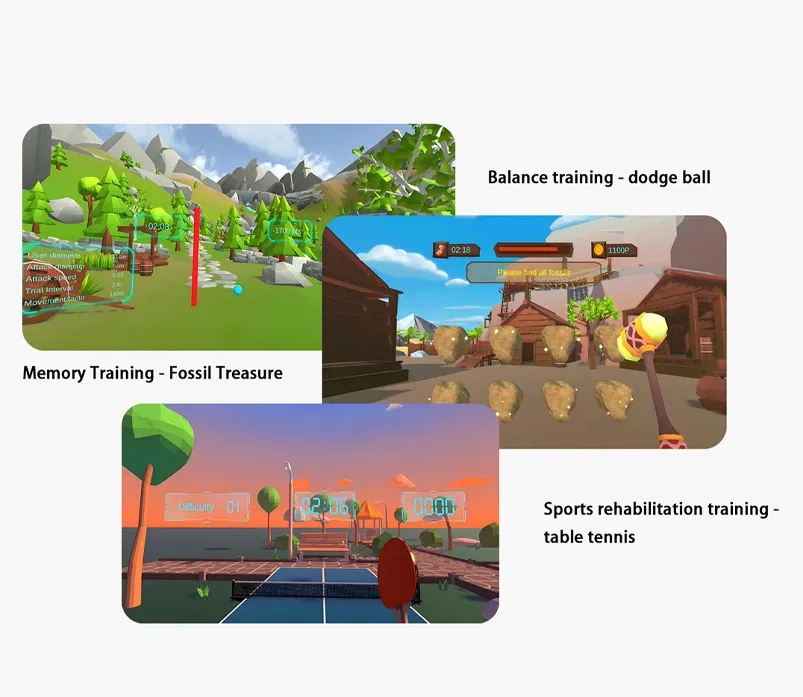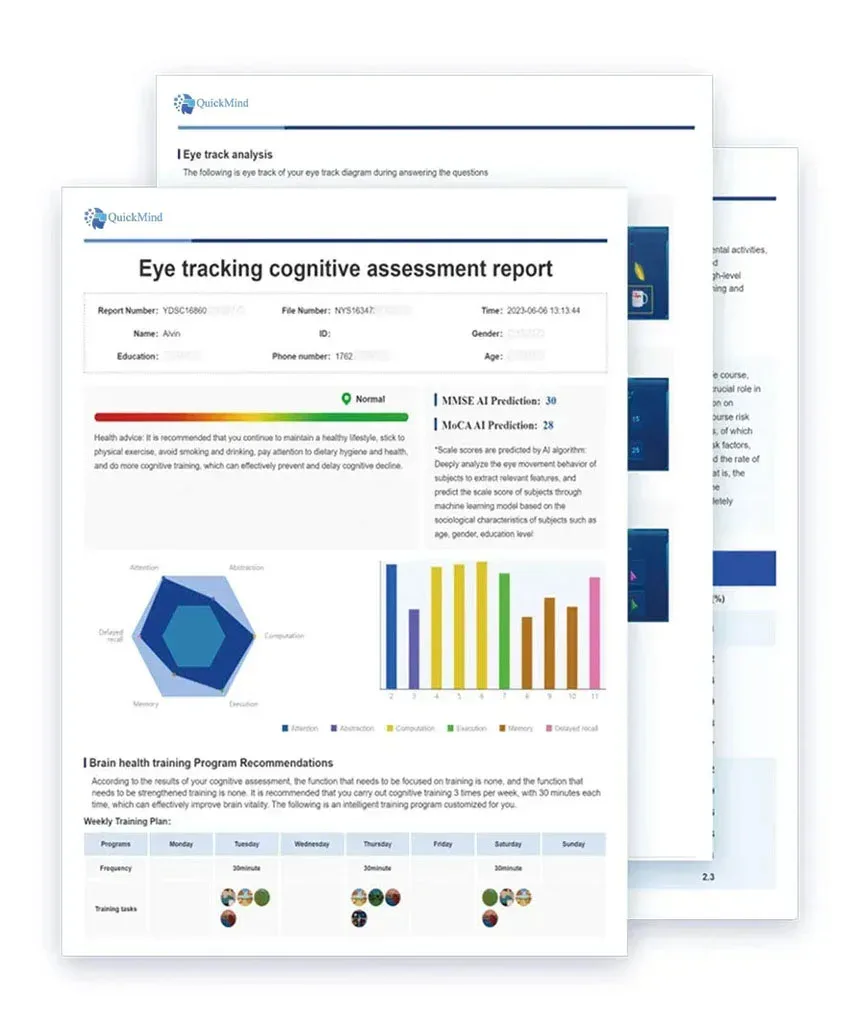
Growing assessments reveals that immersive digital environments therapy can markedly advance the states of participants coping with neurodegenerative disorders. By taking them to comforting scenes, VR offers a special platform for intellectual provocation, emotional stabilization, and social interaction. Several analyses have indicated that VR therapy can diminish excitability, nervousness, and gloom in dementia users while also elevating their mindfulness, mindfulness, and interaction abilities.
- VR empowers patients with dementia to retrace cherished memories through dynamic representations.
- Additionally, it can offer a secure and nurturing space for social engagement, enhancing a consciousness of affiliation and belonging.
- Professionals assert that VR therapy has the possibility to revolutionize dementia help by contributing new and innovative ways to resolve the hard problems faced by individuals struggling against this affliction.
Electronic Health Solutions for Mental Boosting in Alzheimer's
Innovative cyber remedies are indicating success in the field of intellectual growth for participants affected by Alzheimer's ailment. These technologies employ technology to invigorate brain efficiency and maybe retard the growth of the affliction. Motivating drills, personalized coaching, and neuropsychological training are some cases of strategies being explored in this flourishing sphere. While investigations are continuing, digital therapeutics afford a auxiliary channel for enhancing the health of those diagnosed with Alzheimer's ailment.Exploring Virtual Worlds: Innovative Methods for Alzheimer's Care
Touching persons dealing with Alzheimer disorder, the persistent loss of brain power and brain functions can notably affect their skill to communicate with the external world. This debilitating illness often brings about in remoteness, agitation, and a reduced ego recognition. Modern innovations in virtual reality technology unveil a state-of-the-art opportunity to mitigate these issues by developing immersive experiences that can activate the brain and strengthen cognitive function.
Computer-generated surroundings created specifically for patients diagnosed with Alzheimer's can convey them in recognizable locations, such as their childhood abode or a admired outdoor area, evoking positive memories and reducing anxiety. Through interactive endeavors, these virtual universes can also engage cognitive abilities like memory, mindfulness, and decision-making.
The positive effects of virtual reality in Alzheimer's support are extensive. Early studies have manifested hopeful results, with patients displaying improvements in cognitive ability, mood, and overall quality of life. As this development advances, it holds the key to reshaping the way we approach Alzheimer's disease, presenting a new pathway for assistance and strengthening.
Immersive Reminiscence Sessions in Alzheimer's
Reminiscence therapy is a widely recognized technique used to strengthen cognitive function and psychosocial health in individuals with Alzheimer's disease. This conventional form of therapy involves stimulating patients to express past experiences, often through discussion. However, a novel approach is emerging: VR-mediated reminiscence therapy.
This immersive system utilizes virtual reality headsets to bring patients in simulated environments that arouse memories from their past. By going through these constructed realities, individuals with Alzheimer's can interact with their past in a significant way.
VR's Promise for Dementia Care: Enhancing Memory and Cognition
Virtual reality (VR) is emerging as a hopeful device in the fight against dementia, presenting cutting-edge ways to activate memory and cognition. By forming immersive experiences, VR can aid individuals with dementia relive memories, interact in meaningful activities, and strengthen cognitive functions. Studies have revealed that VR interventions can cause serious improvements in memory recall, attention, and locational awareness. Moreover, VR provides a harmless and motivating space for individuals with dementia to engage, reducing feelings of isolation and nervousness.
- Also, VR can be adapted to individual needs and preferences, facilitating greater levels of integration.
- Although the opportunities of VR, further research is needed to fully understand its long-term efficacy in dementia care.
Renewing Memories, Enhancing Relationships: VR for Alzheimer's Social Health
Digital immersion technology is emerging as a cutting-edge platform in the area of neural degeneration. By generating compelling and mutual settings, VR has the opportunity to spark memories, develop social interaction, and elevate the overall quality of life for clients experiencing Alzheimer's. Among the most remarkable aspects of VR is its ability to convey users to beloved areas and journeys from their past. Whether it's a excursion in a childhood home or a recreation of a beloved holiday, these virtual journeys can evoke happy memories and reinforce cognitive skills. Furthermore, VR can facilitate social interaction by linking individuals with others who share similar backgrounds. This can be particularly advantageous for people with Alzheimer's who may have trouble with traditional social contact. By hosting a safe and absorbing virtual space, VR can diminish feelings of isolation and loneliness, which are common among clients experiencing Alzheimer's. Overall, VR cognitive function reheablation holds immense prospect for remodeling the lives of people with Alzheimer's by restoring memories, fortifying connections, and augmenting their quality of life. As technology persists in improve, we can expect even more groundbreaking applications of VR in the field of dementia care.Leveraging Cognitive Training: Deploying VR in Cognitive Symptom Control
Artificial reality platforms is rapidly emerging as a innovative tool in the realm of cognitive training, particularly for patients struggling with Alzheimer's disease. By immersing patients in interactive and engaging virtual environments, VR-based interventions can advance cognitive functions such as memory, attention, and problem-solving. These games routinely incorporate elements of storytelling, exploration, and social interaction, making the training process exceptionally satisfying. Studies have shown that VR-based cognitive training can lead to considerable improvements in cognitive performance, supposedly delaying the progression of Alzheimer's symptoms. Moreover, VR provides a safe and controlled environment for patients to practice new skills and cultivate their confidence.
- Play-based techniques in VR training can make it more interactive and appealing for persons with mental decline.
- VR simulations can offer true-to-life scenarios that test and activate cognitive functions.
- Personalized VR experiences can cater to individualized wishes and procedures.
Virtual Reality: New Horizons in Dementia Assistance
Absorbing artificial domains offer a breakthrough and encouraging avenue for users with cognitive impairments. These systems can generate familiar environments, allowing those affected by cognitive decline to recapture cherished memories and develop a sense of consolation. By easing the burdens of dementia, VR worlds have the ability to refine quality of life for both patients and their families.
- Evaluations indicate that VR treatments can favorably impact cognitive function, sentimental well-being, and even locomotor abilities in individuals with dementia.
- Moreover, VR supplies a safe and structured environment for interaction, reducing the risk of anxiety.
- In addition, VR can promote social associations by allowing individuals with dementia to bond in cyber activities with others.
Employing VR to Detect and Treat Alzheimer's Early
Alzheimer disorder constitutes a difficult difficulty, often remaining in its early stages. However, virtual reality (VR) is developing as a innovative tool for initial identification. Through immersive experiences, VR can examine cognitive faculty in ways that traditional methods cannot cope to. This potential allows for fast support strategies, potentially delaying disease progression and improving the quality of life for patients with Alzheimer's.
- Virtual reality technology offers secure and structured assessments of memory and attention.
- Specialized virtual sessions support personalized cognitive engagement for users.
- VR worlds offer empathetic environments for interaction among those affected by Alzheimer's.
Facilitating Dementia Communication and Interaction Through VR
{In the realm of dementia care, innovative technologies are emerging to augment the lives of people affected by dementia. Virtual reality (VR) is one such innovation that holds immense possibility for narrowing social gaps and boosting communication with dementia clients through VR. By constructing engaging artificial realities, VR can energize cognitive function, reduce behavioral issues, and ultimately improve the overall well-being of people living with dementia.
VR experiences personalized for cognitive decline support can range from recall therapy sessions that bring individuals into past familiar contexts, to interactive games that promote social interaction and cognitive exercise. Furthermore, VR has the skill to connect clients facing dementia with social networks, regardless of physical isolation, fostering a sense of connection.
- VR can encourage in reducing agitation and anxiety by providing a calming and engaging environment.
- Analyses have shown that VR interventions can lead to improvements in cognitive function, mood, and social interaction in subjects coping with dementia.
- As technology continues to advance, we can expect even more innovative and {effective|beneficial|helpful|powerful|impactful|successful|productive|efficient
